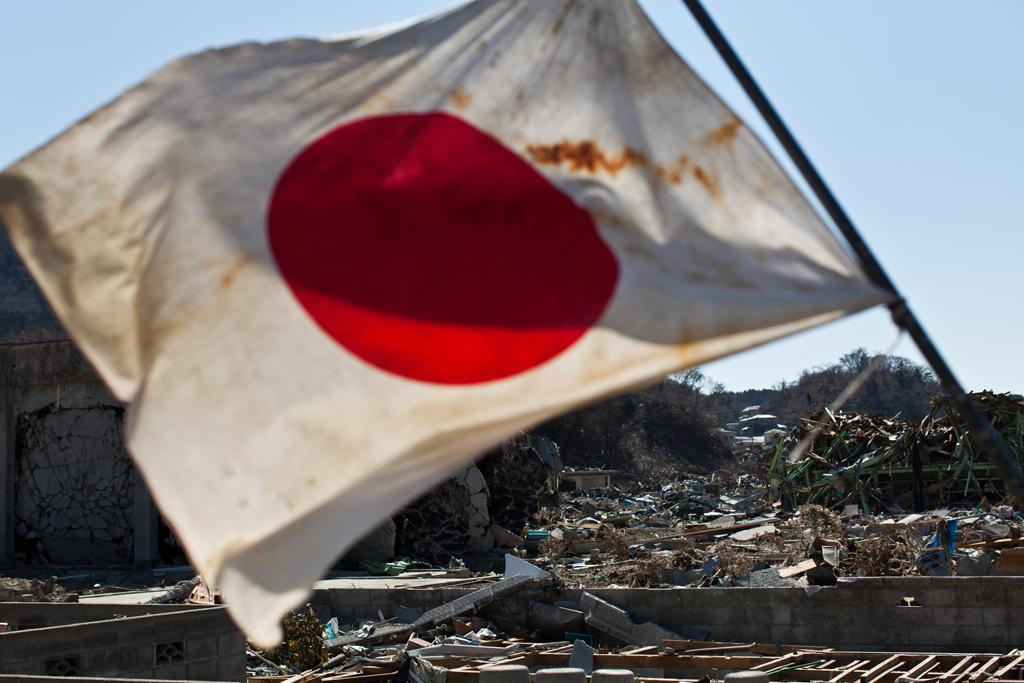Moody’s downgrades Japan’s debt
A Japanese flag waves in the wind amid the wreckage and devastation of the March 11 tsunami in the town centre of Onagawa, Miyagi prefecture, on April 6, 2011.
The United States of America isn't the only country having debt downgrade issues these days.
You can now add Japan to that list.
The credit ratings agency Moody's today downgraded the county's sovereign debt a notch.
It cited three reasons for the slippage: a shaky government, a weak global economy, and the economic headwinds caused by the Mar. 11 earthquake, tsunami and nuclear meltdown.
Here's how Moody's explained it:
Over the past five years, frequent changes in administrations have prevented the government from implementing long-term economic and fiscal strategies into effective and durable policies. The March 11 earthquake and tsunami, and the subsequent disaster at the Fukushima Daiichi Nuclear Power Station, have delayed recovery from the 2009 global recession and aggravated deflationary conditions. Prospects for economic growth are weak, making it more difficult for the government to achieve deficit reduction targets and implement its Comprehensive Tax and Social Security Reform plan.
It wasn't all bad news for the world's third-largest economy. Moody's did say Japan's outlook was more stable:
Japan's very large economy and very deep financial markets provide the wherewithal to absorb economic shocks. Its dependable domestic funding base provides an exceptional home bias for the government, which can fund itself at a lower nominal cost than any other advanced economy. Furthermore, throughout the global financial crisis, in the months after the March earthquake, and in recent days with renewed turmoil in global markets, JGBs continue to demonstrate exceptionally strong safe-haven features.
More from GlobalPost: Can the Japanese economy recover?
The move puts Moody's Japan rating right in line with the analysis of other major ratings agencies.
Standard & Poor's (which downgraded the U.S.) and Fitch rate Japan AA-, three notches below their top AAA ratings, the Associated Press reports.
Japan took little time to respond. The government announced a $100 billion "credit facility" to help the economy cope with economic challenges, including the recent rise in the yen which makes life more difficult for Japanese exporters.
“Taking into account that there is a lopsided rise in the yen, I felt that swift measures were needed,” finance minister Yoshihiko Noda said in Tokyo.
Every day, reporters and producers at The World are hard at work bringing you human-centered news from across the globe. But we can’t do it without you. We need your support to ensure we can continue this work for another year.
Make a gift today, and you’ll help us unlock a matching gift of $67,000!
